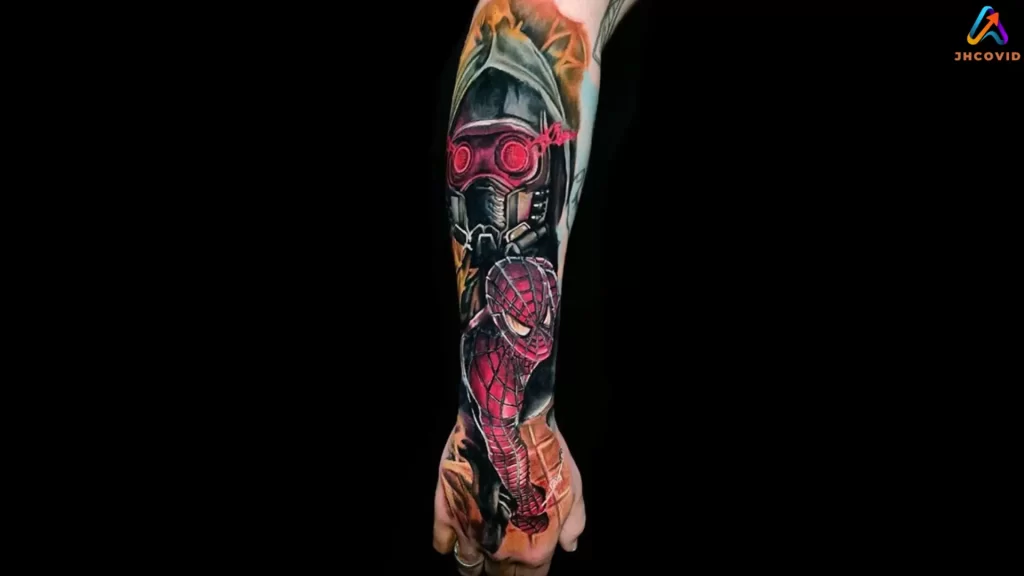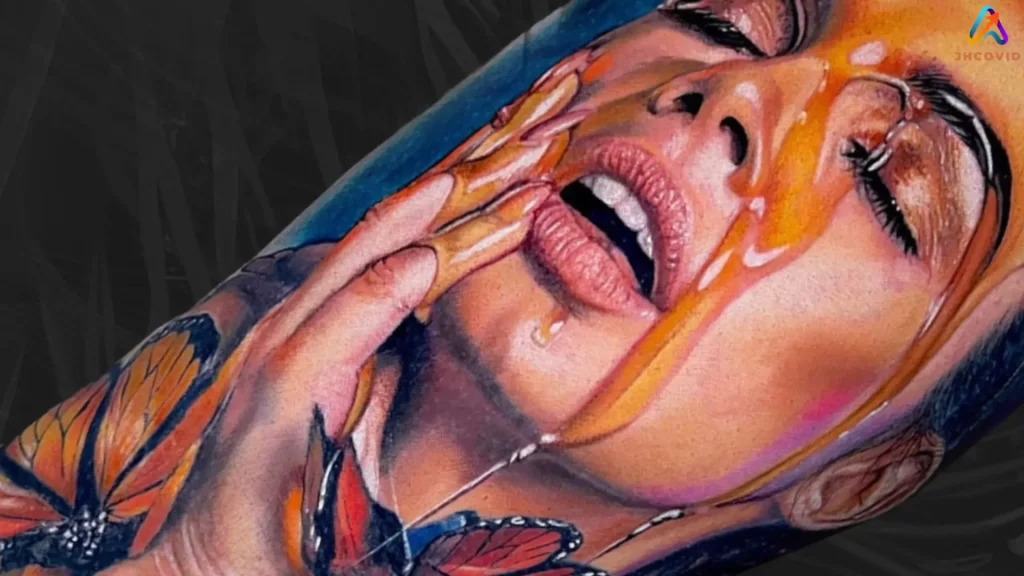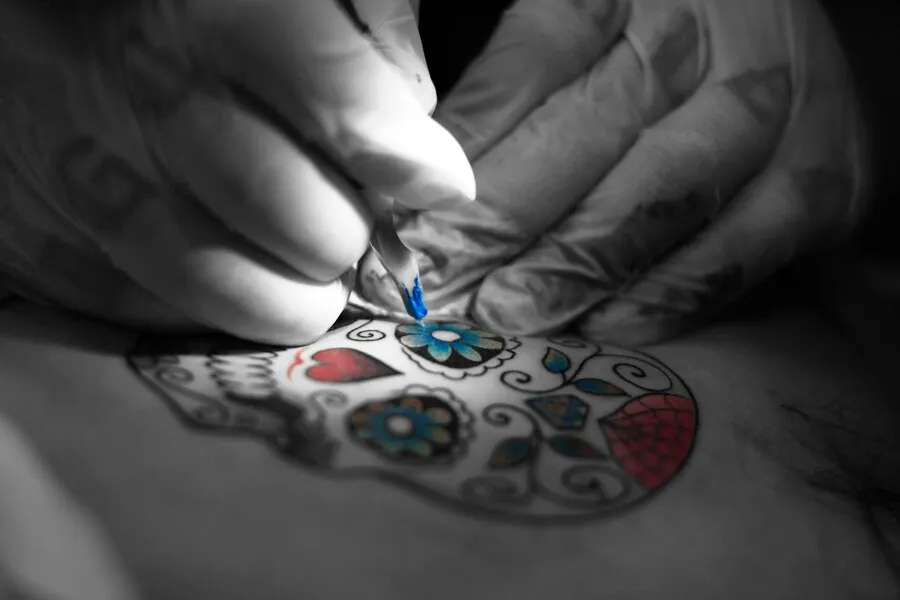Table of Contents
What Are Realism Tattoos?
Realism tattoos strive to imitate the look of actual objects or scenes on the skin, making them a distinctive style. This tattoo style often features intricate details, shading, and depth, making it appear almost photographic. One of the best places to see stunning realism tattoo art is at specialized studios where the craft is honed to perfection.
Unlike traditional or cartoon-like tattoos, realistic tattoos require high artistry and skill. These tattoos go beyond simple skin markings; they are masterpieces that animate the human body. Artists in this style often spend years perfecting their craft, attending workshops, and constantly improving their techniques to achieve the most realistic effects possible.
History of Realism Tattoos

The history of realism tattoos traces back to the Renaissance period when the focus on human anatomy and accurate representations of the human form began, influencing modern tattoo design. Artists like Leonardo da Vinci emphasized the importance of studying human anatomy to create lifelike art.
This focus on realism has evolved over the centuries. In the modern era, advancements in tattoo equipment and techniques have allowed artists to create tattoos with micro-details and lifelike art, which owe much to the fine art traditions of the past.
Modern realism tattoos have been influenced by various art movements, including hyperrealism and surrealism, allowing artists to push the boundaries of what can be achieved on the skin.
Popular Themes in Realism Tattoos
Realism tattoos often depict a wide range of subjects, capturing the essence of their reference images with incredible detail. Here are some common themes:
- Portraits are one of the most sought-after styles in realism tattoos. Portraits are one of the most common themes in realism tattoos, capturing the likeness of a loved one or a famous personality with stunning accuracy. These tattoos often involve a high level of detail in the facial features, hair, and even expressions to convey the subject’s true essence.
- Nature-themed realism tattoos showcase the beauty of the natural world through detailed inkwork. Flowers, landscapes, and animals are favorite subjects due to their thorough and captivating characteristics. Realism artists can capture the delicate petals of a flower, an animal’s fur, or the serene beauty of a natural landscape with extraordinary attention to detail.
- Mythological and Fantasy realism tattoos often blend intricate designs with imaginative elements. Elements from myths or fantasy books can be rendered with impressive realism, blurring the lines between reality and imagination. It allows a creative yet realistic interpretation of fantastical creatures and mythical scenes.
Techniques and Skills Required
Creating a successful realism tattoo requires keen observation skills and technical expertise from the tattoo artist. Tattoo artists must master various techniques, such as shading, color blending, and applying fine lines, to achieve a realistic effect.
Continuous learning and practice are essential as tattoo artists strive to refine their craft in realism. This often involves intensely studying reference photos and practicing on synthetic skins or participating in workshops.
Moreover, artists need to understand the anatomy of the skin, as it behaves differently than a traditional canvas. They need to control the depth of the needle and ensure the ink is applied evenly to maintain the integrity of the tattoo over time.
Choosing the Right Artist

Selecting the right tattoo artist is crucial for getting a high-quality, realistic tattoo. Here are some tips to find the best fit:
- Specialization: Look for artists who specialize in realism and have a portfolio that showcases their previous work in this style. The portfolio should demonstrate their ability to capture fine details, shading, and accurate representations.
- Personal Recommendations: Ask for recommendations from friends or family who have had realism tattoos done by skilled tattoo artists. Learning about their experiences can offer perspectives on the artist’s expertise and dedication.
- Online reviews can provide insight into the quality of the tattoo artist’s realism work. Utilize online reviews to assess the feedback from past customers. Look for consistent positive feedback and any potential red flags in the comments about the tattoo artist’s realism tattoos.
- Studio Visits: Visit studios to see their work firsthand and ensure a professional and clean environment. Interacting with the tattoo artist and observing their process can also help you make an informed decision about your tattoo design.
Pain and Aftercare
Realism tattoos often involve significant detail and can take longer to complete, which may lead to increased discomfort compared to simpler tattoo styles. The process can be particularly intensive, as achieving the realistic effect requires multiple passes over the same area to build up layers of detail and shading. Adequate post-tattoo care is essential for healing and maintaining the realism of the tattoo’s appearance. It includes:
- Keeping the tattoo clean and moisturized with recommended products.
- I avoided direct sunlight on the tattooed area to prevent fading and damage.
- Follow the tattoo artist’s aftercare instructions closely, including any recommendations for products or practices that support the healing of the ink.
- Prevent doing things that may cause discomfort to the tattoo, like swimming in chlorinated pools or wearing snug clothing that covers the tattooed area.
Advice from Industry Experts
Industry experts emphasize the importance of patience and clear communication regarding realism tattoos. Discussing your ideas thoroughly with your tattoo artist can lead to better outcomes. It involves sharing reference images, discussing your vision, and being open to the artist’s feedback and suggestions.
Additionally, understand that the healing process is a critical phase where proper aftercare can significantly affect the final look of the tattoo. Experts recommend staying hydrated, eating nutritious foods, and resting enough to support your body’s natural healing processes. Remember that a beautifully healed tattoo is a collaboration between the artist and the client.
Also Read: Light Up Your Space with Incendio Harry Potter Floating Candles
Future Trends in Realism Tattoos
With the advancement of technology and techniques, realism tattoos have a bright future. Advanced tattoo equipment and innovative methods enable artists to create even more detailed and lifelike tattoos. Emerging trends include:
- Collaborative Art Projects: Artists work together to combine their unique styles and create stunning pieces. These collaborations can result in hybrid tattoos that blend realism with other artistic influences, offering unique and personalized designs.
- Augmented Reality: Integrating AR into tattooing would provide a new dimension and interactive experiences. This could allow clients to see a digital overlay of their potential tattoo in real time, helping them visualize the final result before committing to the ink.






